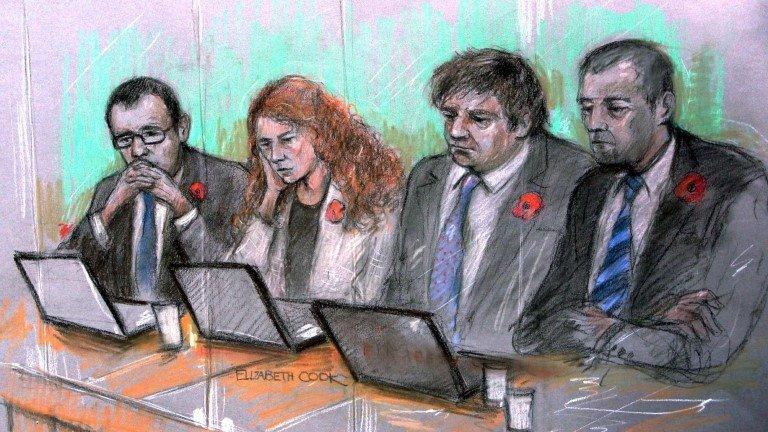Journalists 'escaped scrutiny' over phone-hacking
- Published
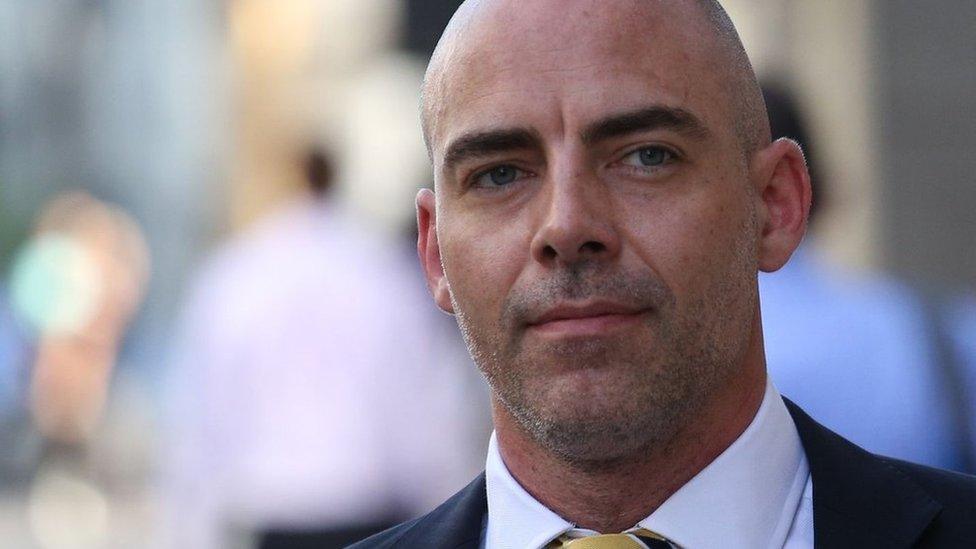
Dan Evans received a 10-month suspended sentence for phone-hacking
A former News of the World journalist convicted for phone-hacking said others may have been allowed to "escape scrutiny".
Dan Evans received a 10-month suspended sentence for phone-hacking, making illegal payments to officials and perverting the course of justice.
He believes evidence to the Leveson public inquiry may have been misleading and said police were not investigating.
The UK government said the inquiry and three police probes were comprehensive, external.
Last week it emerged the Duke of Sussex is suing Mirror Group Newspapers and News Group Newspapers for alleged phone-hacking.
The revelation in 2011 that Glenn Mulcaire, a private investigator used by the News of the World, hacked the phone of murdered teenager Milly Dowler caused national outrage.
It led to a public inquiry into the behaviour of the press, the police and politicians, chaired by Lord Justice Sir Brian Leveson.

(L-R) Kevin Keegan, Patsy Kensit, Lord Archer, Michelle Collins, Joe Swash, and Denise Van Outen settled claims with the Mirror group in 2017
The inquiry was split into two parts, with the second part deferred until after criminal prosecutions concluded in 2016.
But the government closed down the second part, meaning many of the claims of the victims were never heard in an open forum.
It also meant the Leveson Inquiry did not hear from many of the individuals, like Mr Evans, who were most directly involved in phone-hacking.
Mr Evans, originally from Denbighshire, said: "There are questions to answer over the evidence that was previously offered at Leveson, the stuff that would have been covered by Leveson Two but just hasn't been."
But Mr Evans did give evidence against another of his former employers, Mirror Group Newspapers, in a civil High Court case in 2015 on behalf of claimants.
In his judgement in May 2015, Mr Justice Mann said the evidence of the former editor of the Daily Mirror, Richard Wallace, to the Leveson Inquiry had been inaccurate.
He also described the evidence given to the same inquiry, external by the former editor of the Sunday Mirror, Tina Weaver, as "wrong".
Although he acknowledged neither had given evidence before the court, he found: "The practice of phone-hacking was indeed widespread, institutionalised and long standing.
"Editorial staff not only knew about the practice, but are also likely to have conducted it themselves."
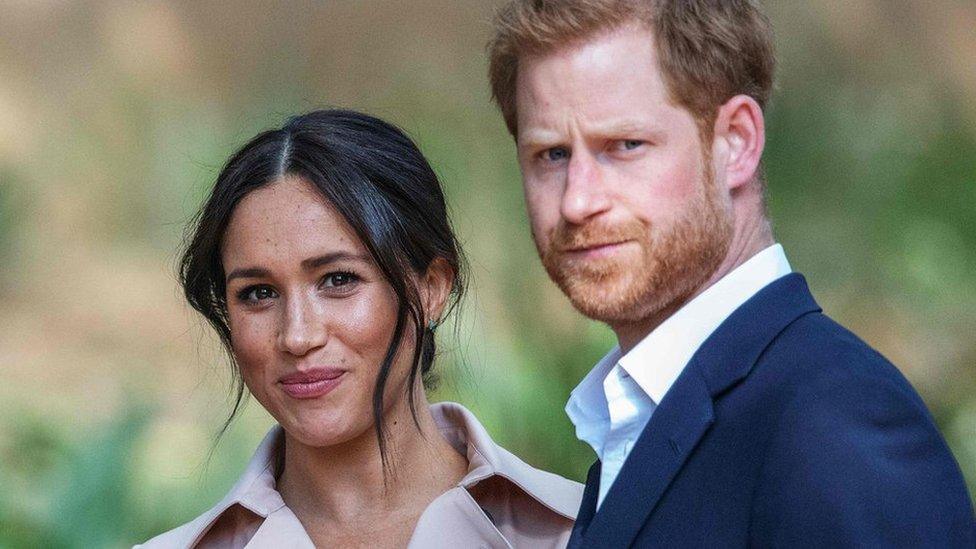
The Duke of Sussex has begun legal action against the owners of the Sun, the defunct News of the World, and the Daily Mirror
However, in December 2015, the Crown Prosecution Service (CPS) announced it was concluding its investigations into Mirror Group Newspapers and News Group Newspapers over allegations of phone-hacking and no further action would be taken, citing "insufficient evidence".
The CPS also decided not to put Mr Evans forward as a prosecution witness, despite him acting successfully as a witness in a previous trial.
'No effect'
BBC Wales approached Tina Weaver and tried to make contact with Richard Wallace for a statement, but did not receive a response.
Neither of them were ever accused of any offence in relation to phone-hacking.
Mirror Group Newspapers, owned by Reach plc, declined to comment.
Mr Evans said he and others have referred Mr Justice Mann's conclusions to the Metropolitan Police, but they "haven't had any effect".
Wrexham MP Ian Lucas, a member of the Westminster culture committee, said he expected the police to investigate.
"I can't understand why there wouldn't be a proper investigation," he said.
"It's vital that people who give evidence are straightforward and give a full account of themselves.
"If people did not do that then it undermines the strength of the inquiry, it undermines the process and we cannot really accept fully the content of the conclusions of Lord Justice Leveson."
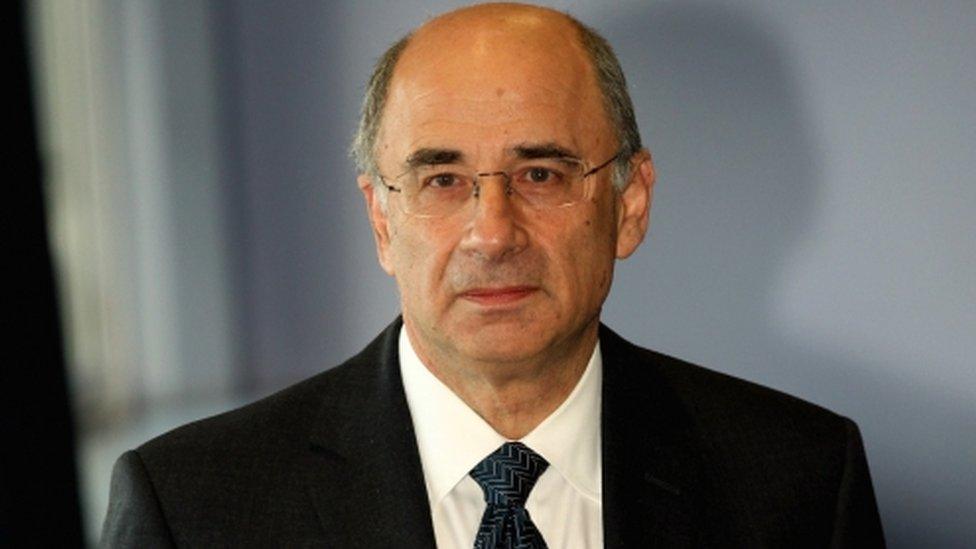
Lord Justice Sir Brian Leveson (pictured in 2012) led the inquiry
The Metropolitan Police Service did not respond to Mr Lucas' comments but confirmed they had received a letter in January 2019, drawing their attention to Mr Justice Mann's statements but an "error" had meant they had not replied until July 2019.
They would "neither confirm nor deny" whether an investigation had begun.
Mr Evans believes the second part of the Leveson Inquiry should go ahead and in the mean time has started a research project called Alt Lev.
He denies it is just an attempt to point the finger at others.
"It would be so much easier to walk away and get on with one's life," he said.
"This is in no way about getting one's own back or anything like this.
"People really need to bear in mind that for every one celebrity, usually in order to get to their private information, usually a group of five or 10 or 15 people around them will have been affected.
"What price would you place on a press that the public can genuinely trust and have faith in?"
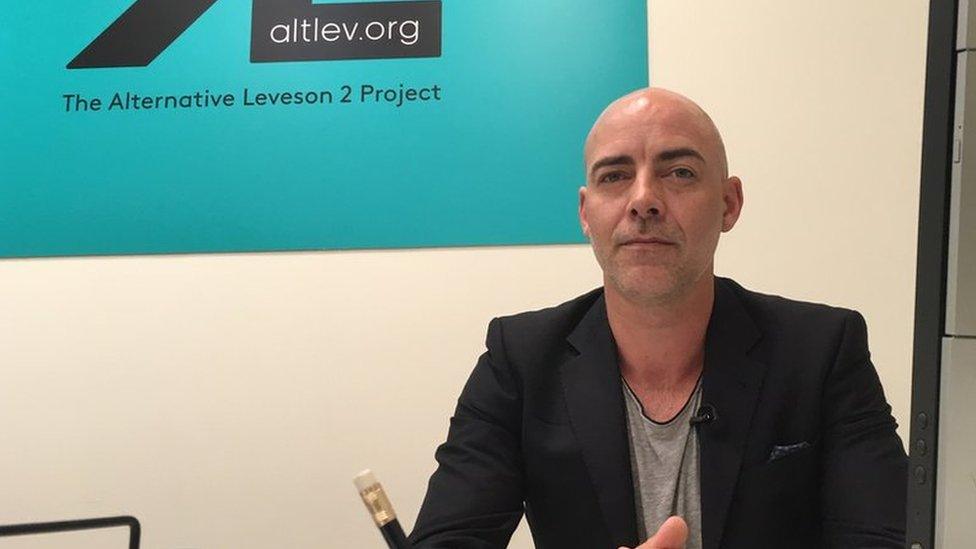
Dan Evans' evidence resulted in the conviction of former News of the World editor Andy Coulson
Former News UK employee, Guto Harri, is opposed to the idea of a further publicly funded inquiry along the lines of Leveson.
"I struggle to see why it is that we as taxpayers want to fund a judge and an army of barristers to sit in court for many months, covered by TV as the first Leveson Inquiry was, revisiting something that the court system has proved capable of dealing with, either through the criminal process or civil process."
In total, nine people were convicted of offences related to phone-hacking following the police's Operation Weeting investigation. Three people were acquitted.
News UK, previously News Group Newspapers, said they had nothing to add to the government's statement.
News UK have consistently denied any wrongdoing at The Sun.
- Published4 October 2019
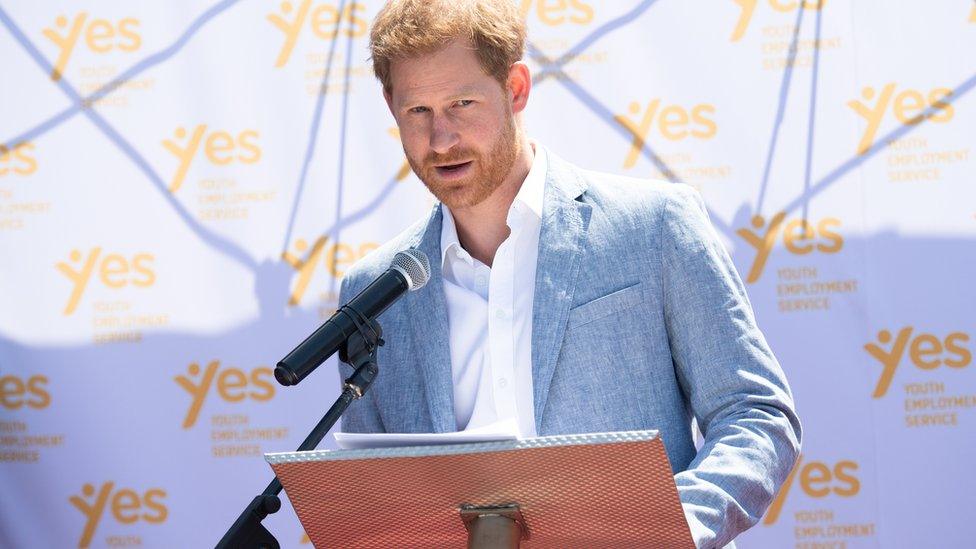
- Published4 May 2019
- Published18 January 2018
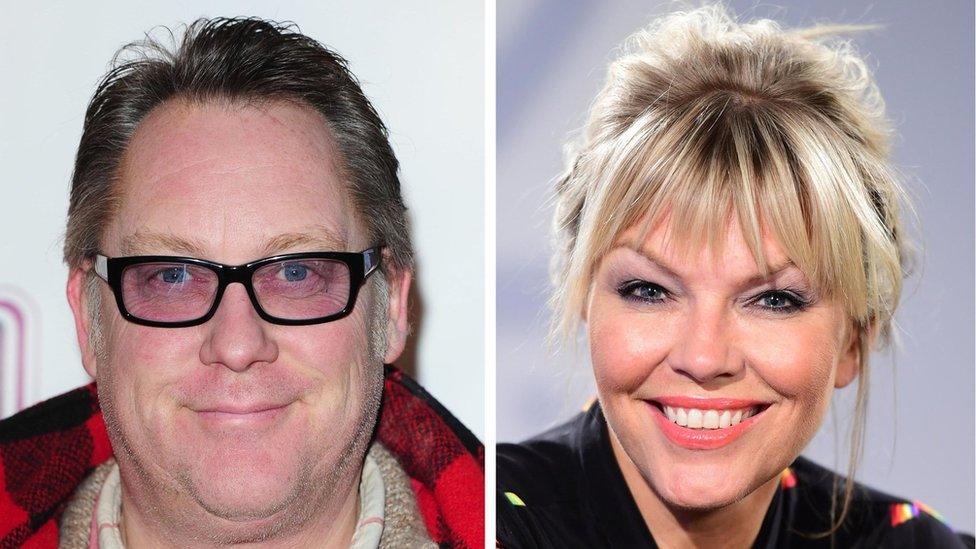
- Published25 April 2017

- Published4 July 2014
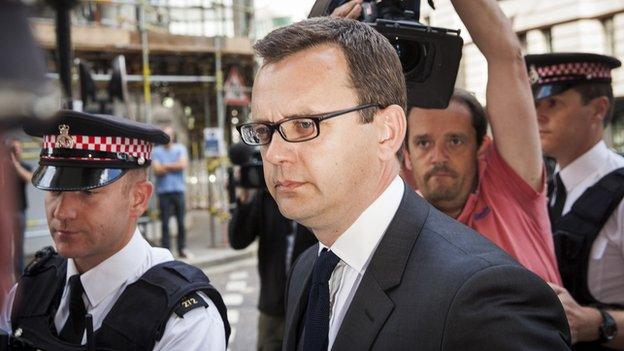
- Published25 June 2014
- Published25 June 2014
